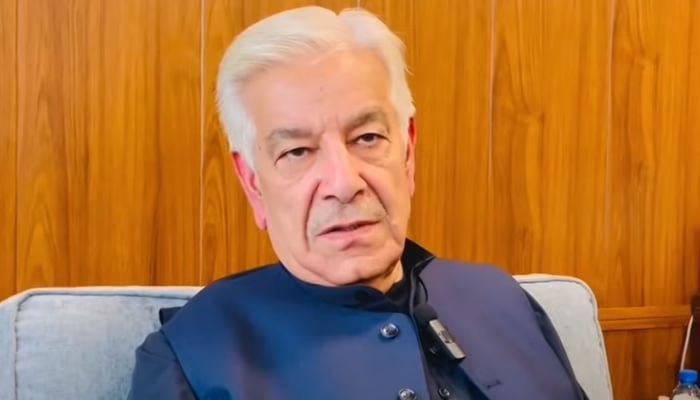Defence Minister Khawaja Asif has reignited the debate on accountability of bureaucrats in Pakistan, alleging that certain officials have amassed wealth through questionable means, including property purchases in Portugal. Speaking on a national news platform, the minister warned that he will soon reveal the names of those involved in such practices, underscoring the need for transparency in public service.
Decades Without Scrutiny
According to Asif, Pakistan’s bureaucracy has operated for the past 78 years without facing any meaningful accountability. He questioned whether anyone had ever examined the number of plots, properties, or overseas assets owned by bureaucrats. This lack of scrutiny, he argued, has allowed some officials to accumulate wealth far beyond their legitimate earnings.
The minister’s remarks came just days after he claimed that more than half of certain bureaucratic circles have bought properties in Portugal and are in the process of acquiring citizenship there. He also cited one example in which a senior bureaucrat allegedly received Rs. 4 billion in “salami” (gifts) during his daughter’s wedding — a staggering figure that has raised eyebrows across the political spectrum.
Portugal Property Purchases Under the Spotlight
Khawaja Asif revealed that a person identified as “Virk” has allegedly been facilitating these property deals in Portugal for bureaucrats and other elites. According to Asif, this individual has even taken photographs of the buyers, which could serve as evidence in ongoing inquiries.
The accountability of bureaucrats in Pakistan, he stressed, must be governed by the same laws and regulations that apply to parliamentarians. Asif contrasted his own modest lifestyle with that of certain officials, stating that he has lived in the same two-room flat for 25 years, does not own a house in an upscale locality, and does not use a government vehicle.
Media Urged to Investigate
The minister has called on the media to dig deeper into these allegations. “I didn’t expect my remarks to cause such an uproar,” he said, adding that he is currently conducting his own inquiry and will make the names of those involved public once the investigation concludes.
His statements have sparked a public conversation about the role of journalism in uncovering corruption and holding powerful figures accountable.
Related Arrest in Sialkot
While speaking on these issues, Asif also addressed the recent arrest of Sialkot’s Additional Deputy Commissioner Revenue (ADCR) by the Anti-Corruption Establishment (ACE) over alleged financial irregularities. The ADCR later obtained a five-day remand.
The defence minister clarified that he had no involvement in this case and emphasized that appropriate action should be taken if the allegations are proven — or disproven — after investigation.
Political Context and Future Plans
Asif dismissed rumors of his resignation, explaining that his recent consultations in Murree were related to the upcoming Punjab by-elections. He stated that the final decision regarding election strategy will be made by Pakistan Muslim League-Nawaz (PML-N) President Nawaz Sharif.
Expressing loyalty to the PML-N leadership, Asif described Nawaz Sharif as his lifelong leader and voiced strong support for Punjab Chief Minister Maryam Nawaz, whom he called the party’s “future leadership.”
Why Accountability of Bureaucrats Matters
The accountability of bureaucrats in Pakistan is a long-standing demand from both political leaders and the public. Critics argue that without proper oversight, misuse of public funds, illegal asset accumulation, and abuse of authority can continue unchecked.
A 2024 report by Transparency International ranked Pakistan 140th out of 180 countries on the Corruption Perceptions Index, highlighting systemic governance challenges. Experts say that implementing uniform accountability measures for both politicians and bureaucrats could improve public trust and reduce corruption-related losses to the economy.
Potential Legal Pathways
If Khawaja Asif’s allegations are pursued, they could lead to:
- Parliamentary Inquiries into asset declarations of civil servants.
- Anti-Corruption Establishment Investigations targeting specific cases.
- Judicial Oversight to ensure transparency in property acquisitions abroad.
Some legal analysts suggest that revisiting and strengthening the Civil Servants Act could close loopholes that allow bureaucrats to accumulate undeclared foreign assets.
Public Reaction and Next Steps
The public reaction to Asif’s statements has been mixed. While some commend his boldness in addressing the accountability of bureaucrats in Pakistan, others question whether political will exists to pursue high-ranking officials with influence and connections.
As the defence minister moves forward with his inquiry, all eyes will be on whether the promised revelations materialize and whether they lead to concrete legal consequences.
Khawaja Asif’s outspoken call for the accountability of bureaucrats in Pakistan has added a new dimension to the country’s political discourse. By naming Portugal property deals and extravagant wealth displays as symbols of unchecked privilege, he has brought renewed attention to the need for equal enforcement of the law.
Whether this moment becomes a turning point in Pakistan’s governance or fades into political rhetoric will depend on the follow-through — from investigative agencies, the judiciary, and the political leadership.



